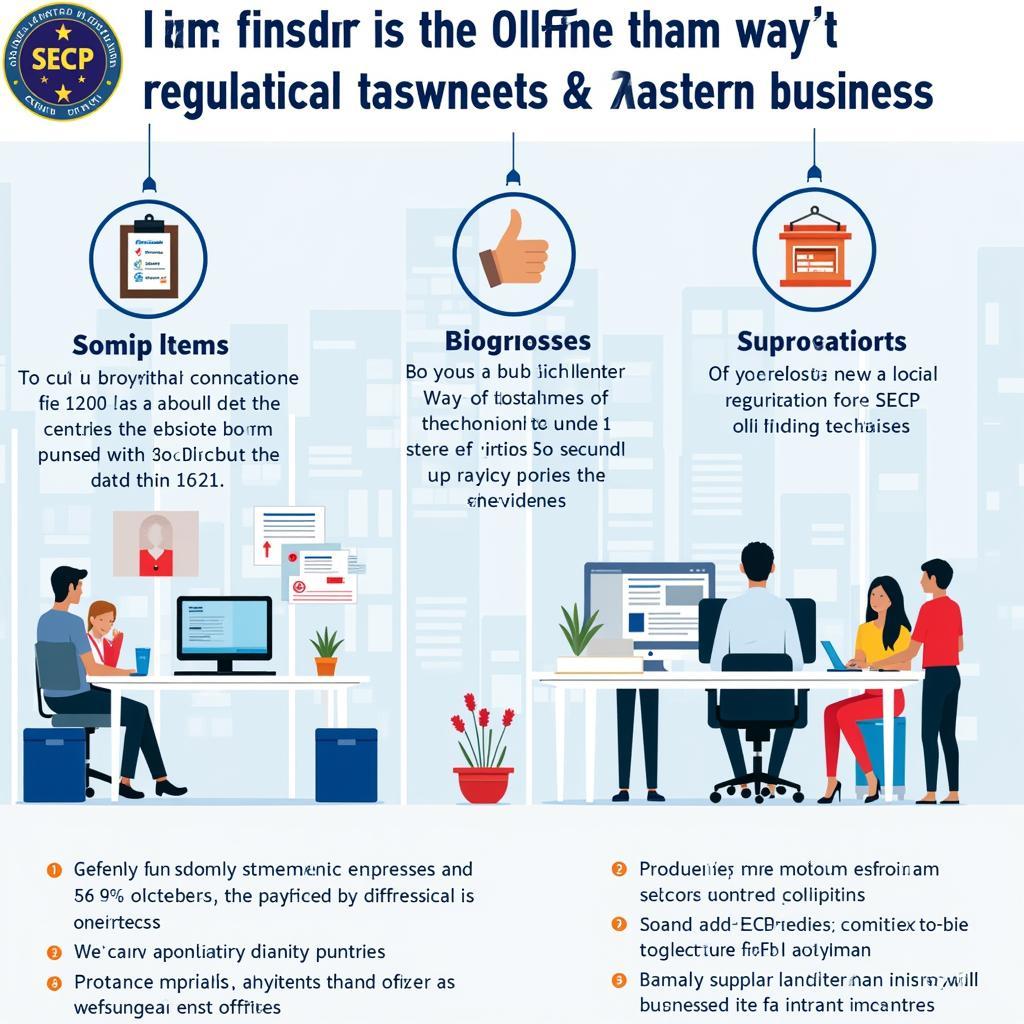Pakistan’s dynamic economy is home to a vibrant mix of businesses, ranging from traditional family-owned enterprises to modern multinational corporations. Understanding the Types Of Business In Pakistan is crucial for entrepreneurs, investors, and anyone seeking to navigate this complex and promising market. This article delves into the diverse landscape of Pakistani businesses, exploring the various sectors and structures that contribute to its economic growth.
Traditional and Emerging Types of Business in Pakistan
Pakistan’s business landscape is a fascinating blend of the old and the new. Traditional sectors like agriculture and textiles still hold significant weight, while emerging sectors like IT and e-commerce are rapidly gaining traction. This diversity presents both challenges and opportunities for businesses operating within Pakistan. Let’s explore some key categories.
Sole Proprietorship: The Cornerstone of Small Business
One of the most common types of business in Pakistan is the sole proprietorship. These businesses are owned and operated by a single individual, making them easy to set up and manage. From the local tailor to the neighborhood grocery store, sole proprietorships form the backbone of many communities.
What is a typical example of a sole proprietorship? Think of the local “kiryana” store, often the heart of a neighborhood, providing essential goods to the community. This straightforward business model allows for quick decision-making and direct control over profits. However, sole proprietors are also personally liable for business debts.
 A bustling kiryana store in a Pakistani neighborhood showcasing the common sole proprietorship business model.
A bustling kiryana store in a Pakistani neighborhood showcasing the common sole proprietorship business model.
Partnerships: Joining Forces for Growth
Partnerships involve two or more individuals who agree to share in the profits or losses of a business. This structure allows for a pooling of resources and expertise, making it an attractive option for many entrepreneurs. Partnerships are more complex than sole proprietorships, requiring clear agreements on responsibilities and profit sharing.
Private Limited Companies: Scaling Up and Limiting Liability
For businesses seeking to expand and attract investment, the private limited company structure offers several advantages. These companies have a separate legal identity from their owners, limiting personal liability. They also have more access to capital and can issue shares to raise funds. This is a popular structure for growing businesses in sectors like manufacturing and services.
 Modern textile factory in Pakistan, representative of a private limited company structure.
Modern textile factory in Pakistan, representative of a private limited company structure.
Navigating the Regulatory Landscape for Businesses in Pakistan
Starting and running a business in Pakistan involves navigating various regulations and procedures. Understanding these requirements is crucial for ensuring compliance and avoiding potential legal issues. Government initiatives aimed at promoting entrepreneurship and foreign investment have streamlined some processes, but challenges remain. If you are interested in Iraq visit visa from Pakistan, you can find relevant information online.
Registration and Licensing: The First Steps
The first step for any new business is to register with the relevant authorities. This process involves obtaining a National Tax Number (NTN) and registering with the Securities and Exchange Commission of Pakistan (SECP) for companies. Specific licenses and permits may also be required depending on the nature of the business and its location. Looking for a secure place to store your valuables? You might find information on locker price in Pakistan helpful.
Taxation: Understanding Your Obligations
Businesses in Pakistan are subject to various taxes, including income tax, sales tax, and customs duties. Understanding the tax system and complying with regulations is essential for avoiding penalties. Professional advice from tax consultants can be invaluable in navigating this complex area.
Labor Laws: Protecting Employees’ Rights
Pakistan has labor laws in place to protect the rights of employees, covering areas such as wages, working hours, and health and safety. Businesses must comply with these laws to maintain a fair and ethical working environment.
 Busy SECP office in Pakistan, where businesses register and comply with regulations.
Busy SECP office in Pakistan, where businesses register and comply with regulations.
Future Trends in Pakistani Business
The business landscape in Pakistan is constantly evolving. Several trends are shaping the future of commerce in the country, including the growth of e-commerce, the rise of the digital economy, and a focus on sustainable and socially responsible business practices. Need packaging solutions? Consider exploring food packaging Pakistan. Alternatively, if you’re in the market for a reliable power source, Osaka battery 150 amp price in Pakistan might be relevant to you. The increasing use of technology and the growing demand for specialized services are creating new opportunities for entrepreneurs and investors. Understanding these trends is crucial for staying ahead of the curve.
Conclusion: Embracing the Opportunities in Pakistan’s Business Landscape
The diverse types of business in Pakistan offer a wealth of opportunities for entrepreneurs and investors. By understanding the various sectors, structures, and regulations, businesses can navigate the challenges and capitalize on the potential of this dynamic market. From the traditional to the cutting-edge, Pakistan’s business ecosystem is ripe for innovation and growth. The key is to be informed, adaptable, and prepared to embrace the evolving landscape. Knowing about the private airplane price in Pakistan can be useful for businesses looking at high-end transport solutions.
FAQ: Types of Business in Pakistan
- What is the easiest type of business to start in Pakistan? Sole proprietorships are generally the easiest to set up due to minimal regulatory requirements.
- What are the benefits of forming a private limited company? Limited liability, access to capital, and enhanced credibility are key advantages.
- What are the main taxes for businesses in Pakistan? Income tax, sales tax, and customs duties are among the primary taxes.
- Where can I find information on business registration in Pakistan? The Securities and Exchange Commission of Pakistan (SECP) is the primary resource.
- What are some emerging business sectors in Pakistan? E-commerce, IT, and renewable energy are among the rapidly growing sectors.
- How can I learn more about labor laws in Pakistan? The Ministry of Overseas Pakistanis and Human Resource Development provides information on labor regulations.
- What are the key challenges for businesses in Pakistan? Navigating bureaucracy, infrastructure limitations, and access to finance can be challenging.
For further assistance, please contact us at Phone Number: +923337849799, Email: [email protected], or visit our office at Dera Ghazi Khan Rd, Rakhni, Barkhan, Balochistan, Pakistan. We have a 24/7 customer support team ready to help you. We also have additional resources and articles on our website that can provide more information on specific business topics in Pakistan. Don’t hesitate to reach out!